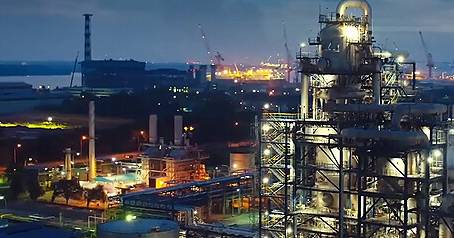Nov . 30, 2024 21:22 Back to list
pvc sewer pipe
The Advantages of PVC Sewer Pipe A Reliable Choice for Modern Plumbing
In the world of plumbing, the choice of materials can significantly affect the durability, efficiency, and overall effectiveness of waste management systems. Among the various materials available, PVC (polyvinyl chloride) sewer pipes have emerged as a favored option for both residential and commercial applications. This article explores the advantages of using PVC sewer pipes, highlighting their benefits and why they have become a staple in modern plumbing.
Durability and Longevity
One of the most compelling reasons to choose PVC sewer pipes is their exceptional durability. PVC is resistant to corrosion, which means it can withstand the harsh chemicals and environments typically found in sewage systems. Unlike metal pipes that may rust over time, PVC maintains its structural integrity, ensuring a long lifespan—typically exceeding 50 years. This durability makes PVC an ideal choice for sewerage applications, reducing the need for frequent replacements and maintenance.
Lightweight and Easy to Install
PVC sewer pipes are significantly lighter than traditional materials such as clay or cast iron. This lightweight nature makes them easier to handle and transport, which can significantly reduce installation costs and labor time. Plumbers can easily maneuver PVC pipes during installation, particularly in tight spaces, leading to faster project completion. Additionally, PVC can be joined using solvent cement, creating a seamless bond that enhances the piping system's strength and reliability.
Cost-Effectiveness
From manufacturing to installation, PVC sewer pipes present a cost-effective solution for plumbing needs. Their affordability stems not only from lower material costs but also from reduced labor costs associated with their lightweight and easy installation. Moreover, their longevity reduces the long-term expenses related to repairs and replacements. Overall, choosing PVC can result in significant savings over the life of a plumbing project.
pvc sewer pipe

Resistance to Roots and Infiltration
One of the challenges of sewer systems is root intrusion from surrounding trees and plants, which can cause blockages and damage. PVC sewer pipes are highly resistant to root penetration, thanks to their smooth interior walls and absence of joints that can be compromised. This resistance minimizes the risk of infiltration and ensures a reliable flow of waste, preventing costly backups and overflows.
Eco-Friendly Option
In today's environmentally conscious world, the sustainability of materials is a growing concern. PVC is a recyclable material, meaning that old PVC pipes can be repurposed rather than ending up in landfills. Additionally, the manufacturing process of PVC pipes consumes less energy compared to metal or ceramic options. By opting for PVC sewer pipes, homeowners and contractors can contribute to a more sustainable plumbing infrastructure, making it an environmentally friendly choice.
Conclusion
In conclusion, PVC sewer pipes offer a myriad of advantages that make them an excellent choice for modern plumbing systems. Their durability, lightweight nature, cost-effectiveness, resistance to root intrusion, and eco-friendly characteristics make them stand out amongst other materials. Whether for new construction projects or retrofitting existing systems, PVC sewer pipes provide a reliable solution that meets the demands of contemporary waste management. As technology and sustainability continue to advance, PVC remains at the forefront of piping solutions, ensuring the effective transport of sewage while maintaining longevity and environmental responsibility.
Choosing PVC sewer pipes not only ensures a robust plumbing system but also aligns with a future-oriented approach to infrastructure development.
-
High-Quality PPR Pipes and Fittings Durable ERA PPR & PVC PPR Solutions
NewsJul.08,2025
-
Black HDPE Cutting Board - Durable, Non-Porous & Food Safe HDPE Plastic Cutting Board
NewsJul.08,2025
-
High-Quality CPVC Panel Durable HDPE & PVC Panels Supplier
NewsJul.08,2025
-
Double PE Welding Rod Supplier - High Strength, Durable & Versatile Welding Solutions
NewsJul.07,2025
-
High-Quality PVC-O Pipe Supplier Durable 75mm PVC Pipe & Connections Leading PVC Pipe Company
NewsJul.07,2025
-
HDPE Drainage Pipe Supplier – Durable & Corrosion-Resistant Solutions
NewsJul.06,2025

